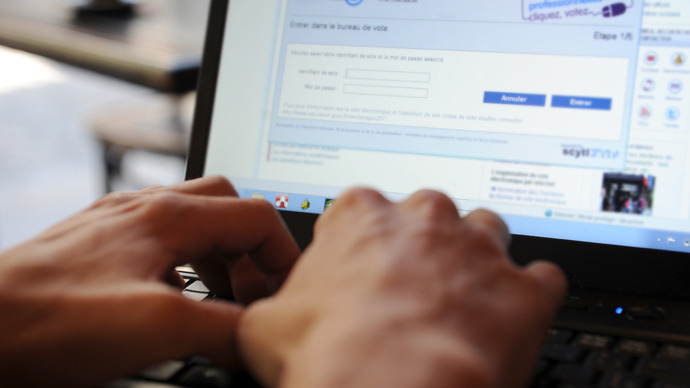FBI requests $41 million to battle ‘wiretap unfriendly’ online correspondence

In an attempt to bring law enforcement capabilities up to speed with current communication techniques, the FBI has requested an additional $41 million from the federal government to direct towards the collection and analysis of Internet transmissions.
The funding increase falls under the “Next Generation Cyber Initiative” meant to fix “critical gaps” in the FBI’s ability to monitor online conversations in the US. The FBI hopes to hire an additional 36 employees but spend $33 million of the $41 million on non-personnel spending. The Huffington Post reported that the classified report is part of the FBI’s 2014 budget proposal to Congress.
FBI officials have expressed concern that social media chats, email correspondence and other new technology is not “wiretap friendly.” The Bureau justified the request by telling Congress the 'Cyber Initiative' will “help promote a whole of government approach to cyber-security, as well as address critical gaps in the FBI’s current ability to investigate computer intrusions and identify, mitigate, and disrupt cyber threat actors.”
Last year FBI representatives quietly met with members of the Senate and proxies for US President Barack Obama to recommend that Internet communication services are pressured into installing “backdoors for government surveillance” in instant-message and email platforms, according to CNET.
“If you create a service, product, or app that allows a user to communicate, you get the privilege of adding that extra coding,” a source said of the proposed requirements, which would only be instituted if a service exceeded a minimum number of users.
That philosophy was again on display during an FBI official’s testimony in front of a Senate Committee on Homeland Security last September.
“The increasingly mobile, complex, and varied nature of communication has created a growing challenge to our ability to conduct court-ordered electronic surveillance of criminals and terrorists,” said Associate Deputy Director Kevin L. Perkins. “Many communications providers are not required to build or maintain intercept capabilities in their ever-changing networks. As a result, they are not often equipped to respond to information sought pursuant to a lawful court order.”
But the government’s concern is not shared by the Electronic Frontier Foundation, an influential advocate for digital rights in the information age. Kevin Bankston, an attorney for the EFF, voiced concern to CNET before the FBI increased lobby efforts for access to more personal information.
“Facebook messages and Gmail messages travel in plain text over those same broadband wires for which the FBI demanded wiretapping capability just a few years ago,” he said “Why has that new capability not been sufficient?”














